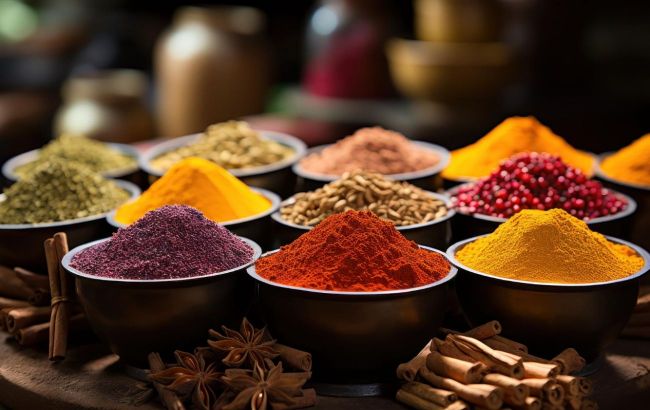Which spices should not be added to meat: Tips
 Some of the popular seasonings are harmful to health (photo: Freepik)
Some of the popular seasonings are harmful to health (photo: Freepik)
Spices, or seasonings, that we add to meat can provide a unique flavor or completely ruin a dish depending on their combination. However, sometimes they can also have a negative impact on health.
Here are 5 seasonings that should not be added to meat, as reported by RBC-Ukraine.
The sources used in preparing the material include The Baltimore Times, The Epicentre, and Spice Advice.
Which spices should not be added to meat
While these spices are often added during cooking, an excessive amount of them can ruin the taste and have a negative impact on health.
Nutmeg
This quite popular spice for meat contains a compound called myristicin, which in large doses can be toxic. Consuming too much nutmeg can lead to symptoms such as nausea, dizziness, and hallucinations.
Cinnamon
Although not used as often as nutmeg, consuming a large amount of cinnamon can cause liver damage and negatively affect heart function.
Garlic
The consumption of a large amount of garlic may interact with blood-thinning medications and increase the risk of bleeding.
Cayenne pepper
In addition to its spiciness, cayenne pepper may cause digestive discomfort and even irritation of the gastrointestinal tract when consumed excessively.
Chili
The effect of chili is similar to that of cayenne pepper. Although these sensations may not pose a serious threat to health, they can certainly be unpleasant and contribute to digestive problems if overused.
How to add spices - tips
- Spices and herbs should be used to enhance the natural flavor of the food, not to mask or dull it.
- Many seasonings and spices can complement each other and the dish, but be cautious in their combination. Avoid using too many at once.
- Use a dry spoon to measure the required portion.
- Do not sprinkle spices directly from the container into the pot. Rising steam can reduce the effectiveness of spices or herbs remaining in the jar, or cause them to clump or spoil faster.
- Crush leafy herbs like oregano, thyme, or basil in your hands before use for a quicker release of aroma.
We also mentioned who should not consume turmeric.
This material is for informational purposes only and should not be used for medical diagnosis or self-treatment. Our goal is to provide readers with accurate information about symptoms, causes, and methods of detecting diseases. RBС-Ukraine is not responsible for any diagnoses that readers may make based on materials from the resource. We do not recommend self-treatment and advise consulting a doctor in case of any health concerns.

